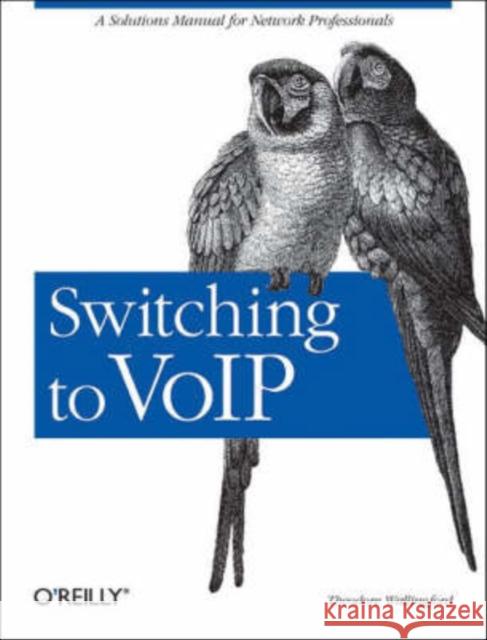Switching to Voip: A Solutions Manual for Network Professionals » książka
Switching to Voip: A Solutions Manual for Network Professionals
ISBN-13: 9780596008680 / Angielski / Miękka / 2005 / 502 str.
More and more businesses today have their receive phone service through Internet instead of local phone company lines. Many businesses are also using their internal local and wide-area network infrastructure to replace legacy enterprise telephone networks. This migration to a single network carrying voice and data is called convergence, and it's revolutionizing the world of telecommunications by slashing costs and empowering users. The technology of families driving this convergence is called VoIP, or Voice over IP. VoIP has advanced Internet-based telephony to a viable solution, piquing the interest of companies small and large. The primary reason for migrating to VoIP is cost, as it equalizes the costs of long distance calls, local calls, and e-mails to fractions of a penny per use. But the real enterprise turn-on is how VoIP empowersbusinesses to mold and customize telecom and datacom solutions using a single, cohesive networking platform. These business drivers are so compelling that legacy telephony is going the way of the dinosaur, yielding to Voice over IP as the dominant enterprise communications paradigm. Developed from real-world experience by a senior developer, O'Reilly's Switching to VoIP provides solutions for the most common VoIP migration challenges. So if you're a network professional who is migrating from a traditional telephony system to a modern, feature-rich network, this book is a must-have. You'lldiscover the strengths and weaknesses of circuit-switched and packet-switched networks, how VoIP systems impact network infrastructure, as well as solutions for common challenges involved with IP voice migrations. Among the challenges discussed and projects presented:
- building a softPBX
- configuring IP phones
- ensuring quality of service
- scalability
- standards-compliance
- topological considerations
- coordinating a complete system ?switchover?
- migrating applications like voicemail and directoryservices
- retro-interfacing to traditional telephony
- supporting mobile users
- security and survivability
- dealing with the challenges of NAT
- SIP
- H.323, SCCP, and IAX
- Voice codecs
- 802.3af
- Type of Service, IP precedence, DiffServ, and RSVP
- 802.1a/b/g WLAN











